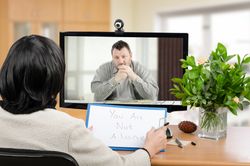Why It's Crucial to Understand Grief During Uncertain Times

The COVID-19 virus has created serious life challenges for many people worldwide. If you’re affected by the coronavirus, you may experience profound feelings of grief and loss during this difficult and unprecedented time, even if you’re not mourning the death of a loved one. For some insight on the various ways grief can manifest itself during the pandemic, take a look at the brief guide below.
How Grief Is Present During COVID-19
While grief is most commonly associated with death, any life challenge that results in loss can trigger this painful emotion. For example, people often grieve after going through a breakup or divorce, losing a job, or moving far away from family and friends.
When it comes to COVID-19, bereavement over the death of a loved one is the most obvious way grief can manifest itself. But there are other losses you may be mourning as a result of the pandemic. From not seeing friends at all to canceled celebrations, such as weddings, this pandemic drastically changed your routine. It’s normal to mourn the loss of your routine, especially if it provided comfort and security.
How to Cope With Feelings of Loss
 No matter what type of grief you’re dealing with, it’s essential to know that your feelings are valid and you are not alone. Self-care is extremely important when it comes to facing life challenges and managing painful emotions.
No matter what type of grief you’re dealing with, it’s essential to know that your feelings are valid and you are not alone. Self-care is extremely important when it comes to facing life challenges and managing painful emotions.
Make sure to establish a routine that feels normal to you. For example, if you enjoyed going to the gym after work, head outside and walk around your neighborhood to mimic your old routine. (Remember to wear a mask if it’s possible you may be in close physical proximity to other people on your walk.) If you enjoyed pasta night every Friday with friends, continue that ritual to feel comfort. Instead of meeting up in their homes, set up a video call and enjoy pasta from your living room while still talking to friends.
Additionally, you can discuss your life challenges and feelings of grief with a therapist. There are many mental health professionals who are now offering online and phone therapy options because of the current need to maintain a safe level of physical distance in public. Although some people feel hesitant to consider these remote therapy alternatives, most people find them to be a very appealing alternative to in-person therapy once they’ve experienced it. Furthermore, because of the need for these types of services during the COVID-19 shutdown, most insurance companies now consider remote therapy to be a covered service. If you wish to consider online or phone therapy alternatives, check with your insurance company to ascertain their current policies on remote mental health services.
If you’re struggling with feelings of grief and loss as a result of COVID-19, get in touch with Audrey Berger, Ph.D. With more than 40 years of experience as a New York State licensed psychologist, she provides compassionate counseling that can be conducted over the phone or online, so you don’t have to leave your house for help. Based out of Rochester, NY, she can set up virtual appointments for clients across New York. Visit her website for more information or call (585) 292-0095 to schedule an appointment.
About the Business
Have a question? Ask the experts!
Send your question

